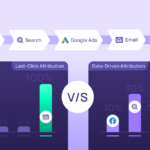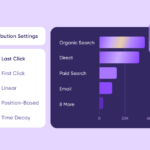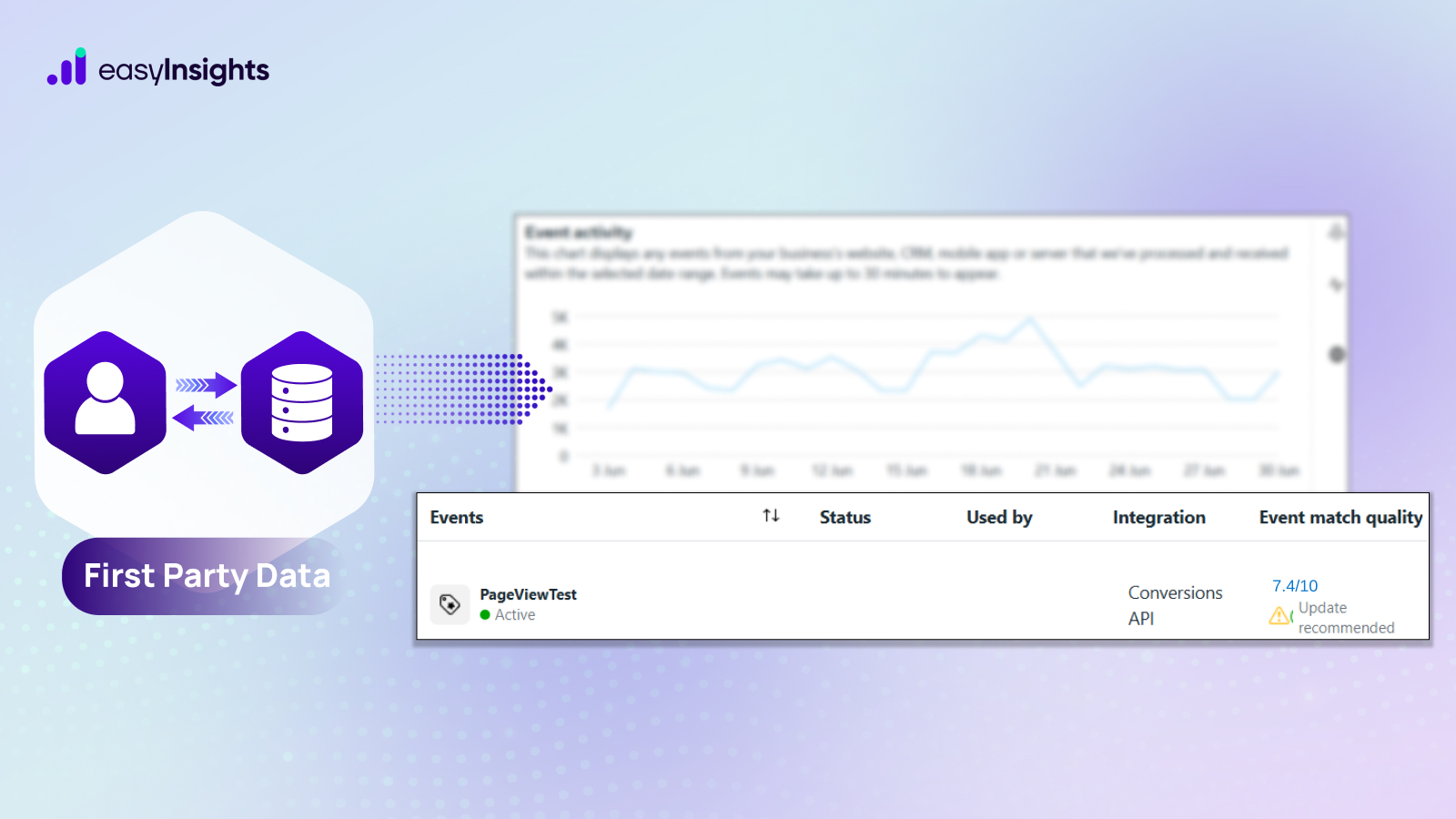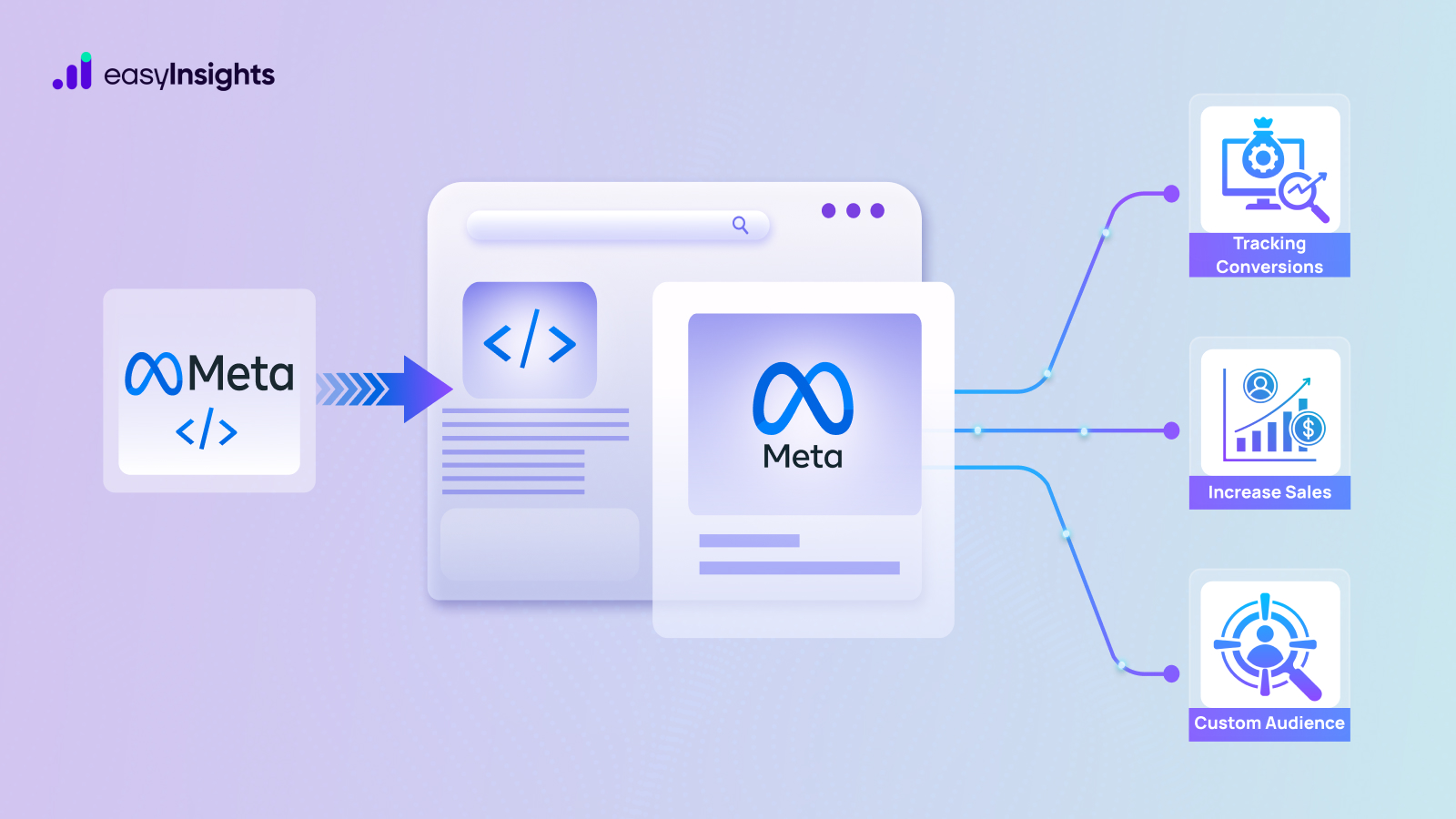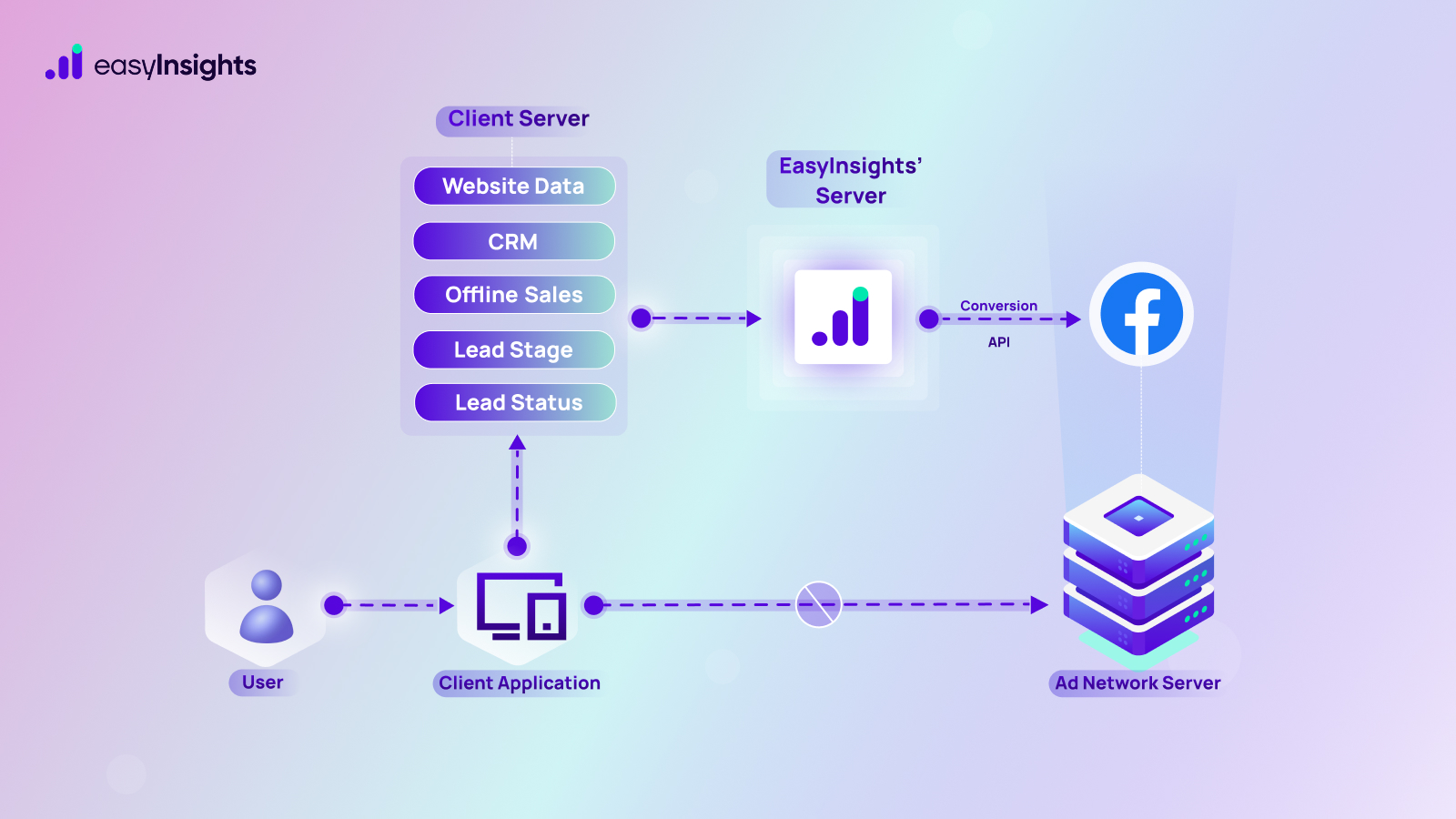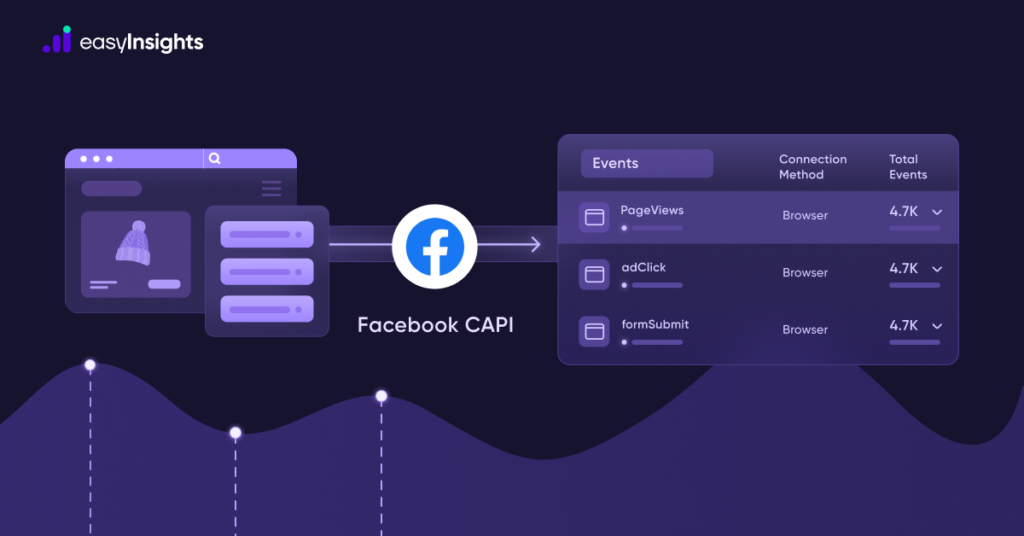
Facebook Conversions API ( CAPI ), is a tool developed in response to browser-based tracking methods’ growing limitations and challenges. This is because with increased privacy regulations, browser restrictions, and the widespread use of ad blockers, the accuracy and reliability of traditional tracking methods, such as the Facebook Pixel, have been compromised.
CAPI addresses these challenges by enabling server-side data sharing, ensuring that businesses can continue to collect and utilize crucial customer interaction data to optimize their advertising campaigns effectively. This approach is a significant shift from traditional browser-based pixel tracking. It offers a range of benefits that enhance both the accuracy and the privacy of data collection.
Jump ahead to:
What is the Meta Conversion API ( CAPI ) ?
Meta Conversions API (CAPI) is a powerful server-side tool developed by Meta (formerly Facebook) that allows businesses to send web events, app events, and offline conversions directly from their server to Meta’s servers-bypassing browser limitations like ad blockers, iOS restrictions (e.g., ATT), and cookie expiration.
How does Facebook Conversion API work?
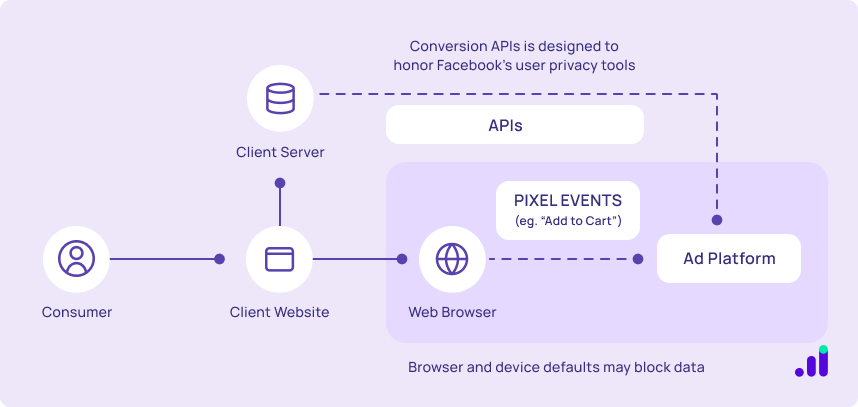
1. User Takes an Action
A user visits your website or app and takes an action – like:
- Clicking a CTA
- Adding a product to cart
- Completing a purchase
- Submitting a form
2. Your Server Captures the Event
Instead of relying on the browser (like the Facebook Pixel), your backend server logs this event along with important user data (called event parameters), such as:
- Event type (e.g., Purchase, Lead)
- User identifiers (e.g., email, phone, IP address)
- Value, currency, timestamp
- Browser and device info (optional but improves match rate)
3. Event Data is Sent to Meta
Your server sends this data directly to Meta’s endpoint via the Conversions API in real-time or in batches. This bypasses browser issues like ad blockers, cookie restrictions, and iOS 14 tracking limitations
4. Meta Matches the Data
Meta uses the user identifiers to match the server-side event with a Facebook/Instagram user who saw or clicked your ad.
- The stronger your identifiers (hashed email, phone, etc.), the better the match rate.
- If matched, Meta attributes the conversion to your ad campaign.
5. Results Are Reflected in Meta Ads Manager
Once matched and verified:
- The event appears in your Meta Ads Manager under campaign performance.
- It helps improve attribution, reporting, targeting, and optimization.
Meta Conversions API ( CAPI ) Vs Meta Pixel
| Feature | Facebook Pixel | Facebook Conversions API |
| Tracking Method | Client-Side (Browser based) | Server-side (backend-to-Meta server) |
| Reliability | Low (affected by ad blockers, iOS14+) | High (resistant to browser restrictions) |
| Setup Complexity | Simple (add Pixel code to website) | Moderate to complex (requires backend access) |
| Real-Time Data | Yes | Yes |
| Event Matching Quality | Medium | High (can include more identifiers) |
| Data Accuracy | Can be inaccurate due to lost signals | More accurate and persistent |
| Data Privacy Compliance | Moderate | High |
| Customization | Limited | Extensive |
What Can Meta Conversions API ( CAPI ) Track?
The Meta Conversions API (CAPI) is a powerful server-side tracking solution that helps businesses capture user interactions and conversions more accurately, even in an era of increasing privacy restrictions like iOS 14+, cookie loss, and browser tracking limitations.
By sending data directly from your server to Meta’s servers, CAPI ensures your campaigns are fueled by clean, reliable data for better optimization, targeting, and attribution.
Let’s explore the key events and interactions you can track with Meta CAPI:
1. User Interactions – CAPI allows you to capture critical on-site behavior that signals user interest and intent:
- Page Views: When users view a page.
- Content Views: When users view content like articles or products.
- Searches: When users search on your site.
- Button Clicks: When users click buttons like “Add to Cart” or “Purchase.”
2. Transactions – Understand conversion patterns and sales performance with precise purchase behavior tracking:
- Purchases: Capture transaction details – product names, quantity, revenue, and currency.
- Add to Cart/Checkout Initiation: Track the full funnel from product interest to buying intent.
- Add Payment Info: Know when users provide their billing or card details.
- Lead Submissions: Track form fills, sign-ups, demo requests, or quote inquiries.
3. Custom Events – CAPI supports flexible, business-specific tracking with custom events that go beyond standard ecommerce actions:
- Return Orders (RTO)
- Cancellation
- PDF Downloads
- Appointment bookings.
4. Web and App Events – Whether you’re running a web store or mobile app, CAPI lets you unify key interactions across platforms:
- Page Views: Monitoring when users visit a page on your site.
- Content Views: Tracking when specific content pieces are viewed.
- Add to Cart: Logging instances when users add items to their shopping cart.
- Purchases: Capturing completed transactions and purchase details.
- Lead Submissions: Recording when users submit forms to become leads.
- Searches: Tracking search queries made on your platform.
- Sign-ups: Monitoring new user registrations or sign-ups.
5. Offline Events – CAPI can track offline actions and sync them with Meta ad campaigns:
- In-Store Purchases: Link physical retail sales back to Meta ads.
- Phone Orders: Attribute call-based conversions.
- CRM Data: Send lead or customer info from your CRM (e.g., HubSpot, Salesforce) to Meta for retargeting and attribution.
Step-by-Step Guide to Set Up Facebook Conversion API
1. Prerequisites
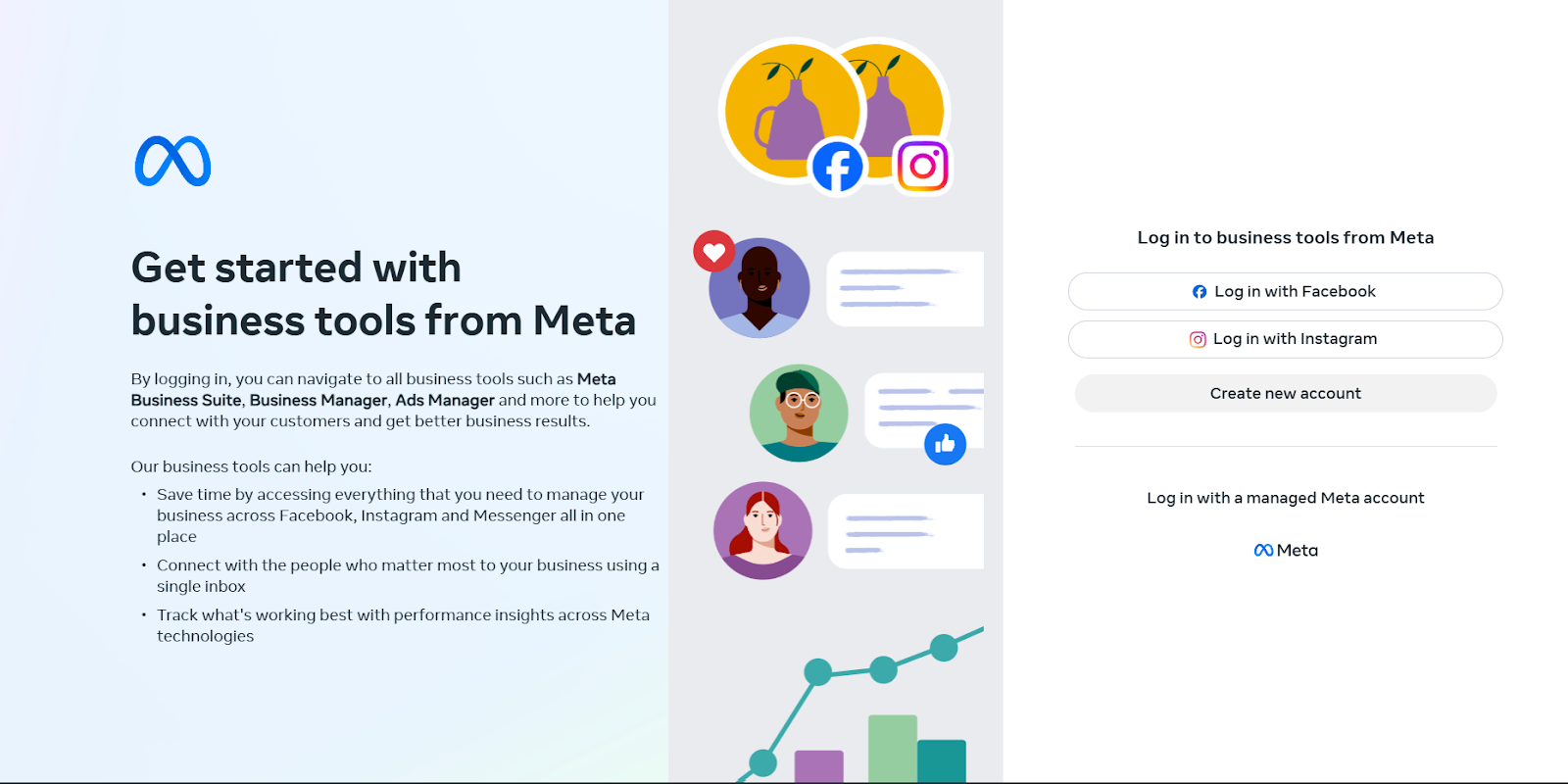
Before you begin, ensure you have the following:
- Facebook Business Manager Account: You need admin access to your Facebook Business Manager account.
- Facebook Pixel: Make sure your Facebook Pixel is set up and integrated with your website or app.
- Access to Your Website or App Backend: You’ll need access to the backend code or server where conversions occur.
2. Generate Access Token
To set up the Facebook Conversion API, start by generating an access token:
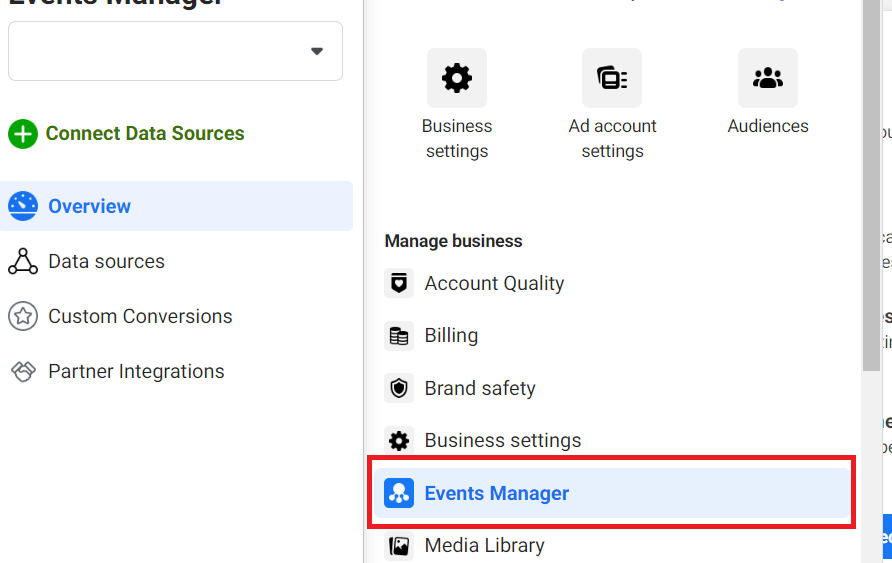
- Log in to your Facebook Business Manager account.
- Go to Events Manager.
- Select the Pixel you want to configure for the Conversion API.
- Navigate to the Settings tab.
- In the Conversions API section, find the Generate access token link under Set up manually.
- Click on “Generate access token” and follow the instructions to generate your access token. This token will authenticate your API requests to Facebook’s servers.

3. Set Up Your Server
The Facebook Conversion API requires server-side integration. You can set up your server using platforms like Google Cloud, AWS, or others. Here’s how:
- Choose a Server Provider: Select a server provider and set up a server to handle API requests from your website or app.
- Server Configuration: Ensure your server is capable of securely transmitting data to Facebook’s servers via HTTPS.
4. Implement Facebook Conversion API
Once you have your access token and server set up, implement the Conversion API on your server:
Install Facebook’s SDK or Use API Calls: Integrate Facebook’s SDK into your backend code or make direct API calls to send conversion events to Facebook.
- Adjust the code based on your server-side language and framework.
- Send Conversion Events: Use the appropriate API endpoints to send conversion events such as purchases, registrations, or any other custom events relevant to your business goals.
5. Testing and Verification
Before deploying live, thoroughly test your setup:
- Use test events provided by Facebook to verify that events are being sent correctly.
- Monitor your server logs and Facebook Events Manager to ensure events are received and processed accurately.
6. Monitor and Optimize
After deployment, regularly monitor your conversions in Facebook Events Manager:
- Check with the Event Manager to ensure events are tracked correctly.
- Review the Event Match Quality Score to gauge the accuracy of matched events.
7. Compliance and Privacy
Ensure compliance with privacy regulations such as GDPR or CCPA when handling user data:
- Implement appropriate data protection measures and ensure transparency in data collection practices.
Benefits of Facebook Conversions API ( CAPI )
There are several key benefits to using Facebook Conversion API there include.
1. Improved Data Accuracy – CAPI sends data directly from your server, bypassing browser issues like:
- Ad blockers
- Cookie loss
- iOS 14+ restrictions
Result: More reliable and complete event tracking for better attribution.
2. Better Conversion Attribution – Meta CAPI helps match conversions more accurately with ads by using:
- Server-side data
- Multiple user identifiers (email, phone, IP)
Result: Improved attribution = more credit to the right campaigns.
3. Enhanced Optimization & ROAS
Accurate data = better training for Meta’s machine learning. CAPI improves:
- Campaign delivery
- Bid strategies
- Retargeting accuracy
4. Bypasses Browser & Device Limitations – CAPI works independently of:
- Browsers (Chrome, Safari, etc.)
- Device settings
- App Tracking Transparency (ATT) prompts
Result: Resilient tracking, even when users opt out.
5. Enables Offline & Multi-Platform Tracking – You can send data from:
- CRMs
- POS systems
- Call centers
- Mobile apps
Result: Capture full-funnel conversions – including offline even
6. Custom Events & Flexibility – Track custom actions like:
- Form submissions
- PDF downloads
- Appointment bookings
Result: Tailored tracking for your unique customer journey.
7. Event Deduplication
- When used with Pixel, Meta can deduplicate events using event_id—so you’re not double-counting.
- Result: Clean, non-redundant data for better reporting.
8. Increased Event Match Quality (EMQ) – CAPI allows you to send more identifiers (email, phone, IP, etc.).
This increases Event Match Quality, which improves:
- Audience building
- Custom conversions
- Lookalike targeting
9. Supports GDPR, CCPA, and Privacy Compliance – Gives you better control over:
- What data you collect
- When you send it
- Easier to comply with regulations by handling consent server-side.
Additional Read: Third Party Cookies Loss & its Impact on Marketing
Implement Conversions API ( CAPI ) Seamlessly with EasyInsights
The Facebook Conversions API (CAPI) is an essential tool for modern marketers facing the challenges of evolving privacy regulations, browser restrictions, and ad blockers. By enabling server-side data sharing, CAPI ensures accurate and reliable data collection, even when traditional methods like the Facebook Pixel are hindered. This advanced tracking method allows businesses to optimize their advertising campaigns more effectively, enhancing both data accuracy and privacy compliance. Implementing CAPI in conjunction with the Facebook Pixel offers numerous benefits, including improved attribution, better ad targeting, and lower costs per action.
Setting up CAPI through Google Tag Manager involves configuring server-side tagging, first-party cookies, and relevant variables to capture essential data like user interactions and transaction details. This comprehensive setup enables businesses to track a wide range of user actions, from page views to offline conversions, providing deeper insights into customer behavior and ad performance.
For businesses looking to streamline the integration process and make the most out of their data, EasyInsights offers a seamless solution. By connecting your marketing data from various sources, including Facebook Conversions API and Pixel, EasyInsights provides a unified platform for comprehensive data analysis and reporting. This allows you to gain actionable insights quickly, helping you optimize your advertising strategies with ease.
With EasyInsights, you can:
- Automate Data Collection: Easily integrate data from multiple sources without manual effort.
- Customizable Reports: Create tailored reports that highlight key performance metrics.
- Real-Time Analysis: Access up-to-date data to make informed decisions swiftly.
- Enhanced Visualization: Use intuitive dashboards to visualize your marketing performance effectively.
In conclusion, the Facebook Conversions API is a powerful solution that not only addresses the limitations of client-side tracking but also prepares businesses for a future where data privacy and accuracy are paramount. By integrating CAPI into your marketing strategy, you can ensure more effective and compliant ad campaigns, ultimately driving better results and higher ROI. For an even more efficient data integration and analysis process, consider leveraging EasyInsights to unlock the full potential of your marketing data.


